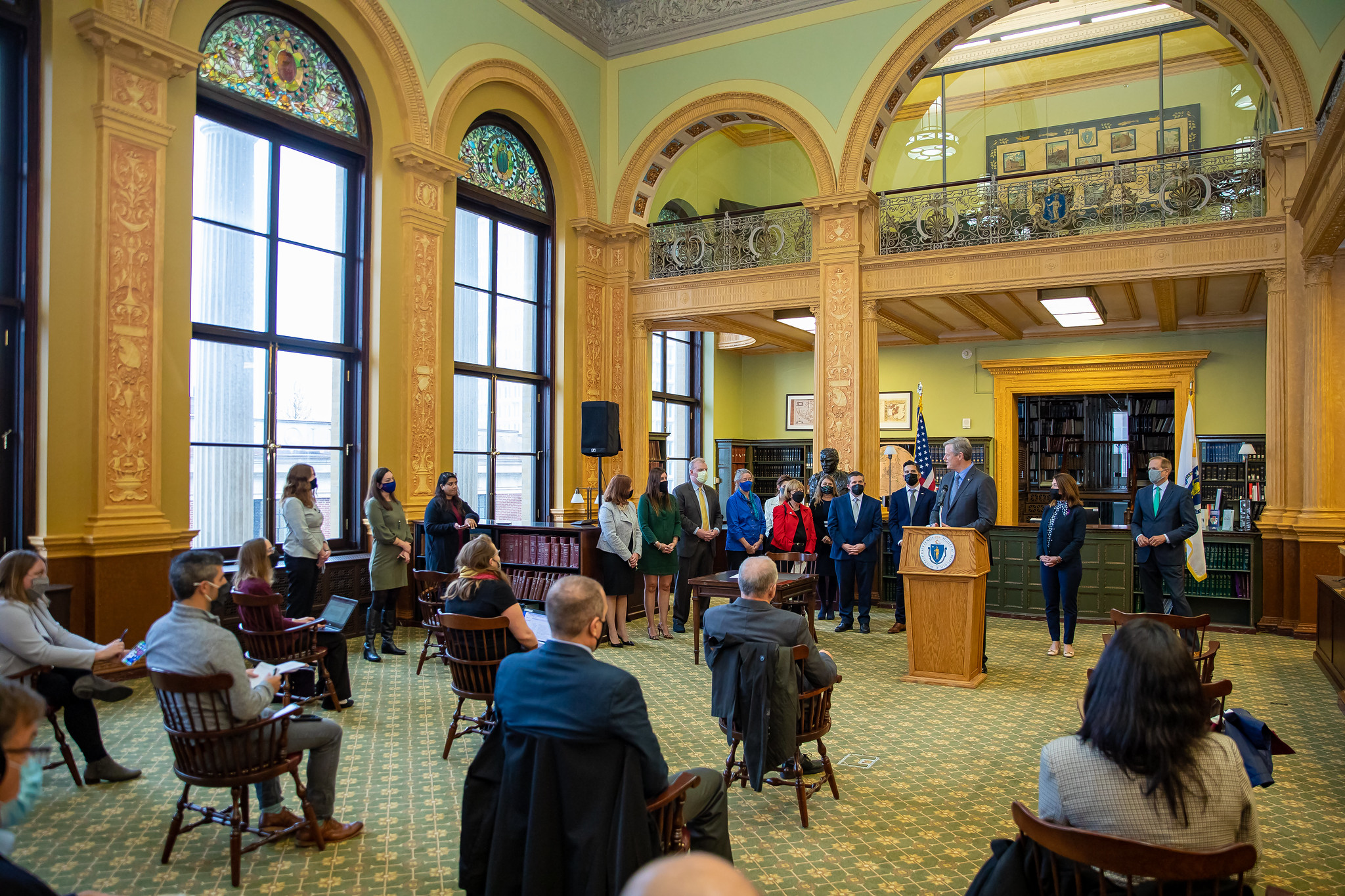[broadstreet zone=”53230″]
BOSTON – Today, October 25, Massachusetts Governor Charlie Baker, Lt. Governor Karyn Polito and Secretary of Education James Peyser joined lawmakers to participate in a ceremonial bill signing for An Act Promoting Student Nutrition (H 3999) which increases students’ access to free school meals and prohibits schools from using any punitive measures against students with meal debt. The legislation requires any school or district to implement universal free breakfast and lunch for all students if a majority of its the students meet low-income criteria.
“This legislation is another way we can ensure all children in the Commonwealth have access to healthy meals when they are in school,” said Governor Charlie Baker. “We are thankful to our partners in the Legislature for their leadership on this important issue so that no child goes hungry and can focus on their learning and education.”
“This bill will end the undue burden on students whose families have school meal debt by preventing children from being involved,” said Lt. Governor Karyn Polito. “No child should be involved in debt collection or made to feel uncomfortable when they go to eat lunch at school.”
[broadstreet zone=”54526″]
“As a state, we simply cannot accept hungry students as part of our reality. Students who don’t get enough to eat every single day face very real disadvantages as compared to their peers,” said Senate President Karen Spilka. “This legislation ensures that students across the Commonwealth have equitable access to nutrition to ensure that they start every day ready to learn. I’d like to thank Senate Majority Leader Cindy Creem for her leadership on this bill, and to the Legislature and Governor Baker for acknowledging that supporting our students through accessible meals, rather than shaming families for their inability to pay, is the best path towards success for all of our students.”
Framingham Public Schools, via School Committee vote advocated for by vice chair Tiffanie Maskell, District 7, voted its own policy like the state’s back in 2018.
In April of 2018, the Framingham School Committee voted 9-0 to immediately institute a new meal policy. This effort ensured all students will be provided breakfast and lunch, regardless of their meal account balance.
[broadstreet zone=”59940″]
Under the Framingham policy, accounts still are charged, yet a student’s daily balance will have no negative impact on receiving a meal.
The new policy calls for no student to be denied a breakfast or lunch meal at school.
Additionally the policy states that no Framingham middle or high school student will be made aware of a negative meal account balance in the checkout process, nor singled out nor treated in any different way from students with positive meal account balances.
“Addressing food insecurity, especially among our state’s most vulnerable students so they are able to learn and succeed in school, is a top priority for the Massachusetts House of Representatives,” said Speaker of the House Ronald J. Mariano. “I would like to thank Chair Alice Peisch and Representative Andy Vargas for their leadership and hard work in extending access to meals and working to end hunger in our schools.”
[broadstreet zone=”61074″]
“School meals are critical to students’ health and well-being,” said Secretary of Education James Peyser. “This new law will expand access to free school meals to ensure thousands of additional students have access to healthy meals every day so they can learn and grow to their full potential.”
The legislation also requires school districts that participate in the national school lunch program to take steps to maximize federal revenue resources and savings for families and directs the Department of Elementary and Secondary Education to assist districts in improving direct certification for its students.
It also allows school districts to certify children for free or reduced-priced meals for up to four consecutive school years.
[broadstreet zone=”59984″]
In addition, school districts will be required to determine whether a student with unpaid meal debt is eligible for free or reduced-priced meals within 30 days of notification of the debt. During that 30-day window, students can still access meals until it is determined whether the family is eligible for free or reduced meals.
School employees are now prohibited in any way from publicly identifying a student with meal debt; denying a student a meal; disposing of a student’s meal; or serving a student an alternative meal because of debt.


